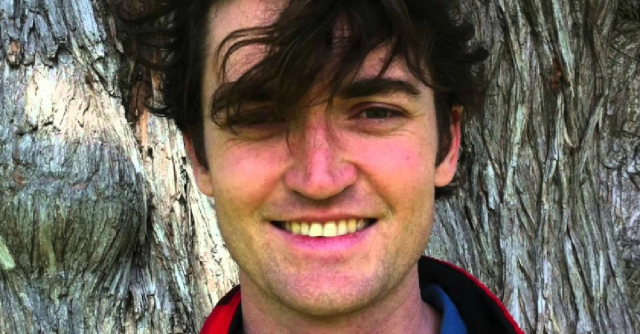Ross Ulbricht is forbidden from going online, but that hasn’t stopped him from tweeting.
Ulbricht – formerly known as Dread Pirate Roberts, founder of the Silk Road Dark Web online market – was convicted in 2015 on charges of money laundering, conspiracy, drug and hacking-related charges.
He was sentenced to double life sentences without parole, plus another 40 years – but that hasn’t kept him quiet: his family opened a Twitter account for him in June, and they’ve been posting his tweets ever since.
After he was convicted, Ulbricht’s mother, Lyn Ulbricht, launched the “Free Ross Ulbricht” campaign, which accuses the government of framing her son as part of the “failed War on Drugs.” The campaign portrays his case as a milestone in the government’s crackdown on internet freedom.
The campaign reads:
This is a sentence that shocks the conscience. The website Silk Road was an e-commerce platform similar to eBay, where individual users chose what to list for sale. Both legal and illegal items were sold, most commonly small amounts of cannabis.
Ross is condemned to die in prison, not for dealing drugs himself but for a website where others did. This is far harsher than the punishment for many murderers, paedophiles, rapists and other violent people.
You might be forgiven if you were to raise an eyebrow at Ulbricht being called nonviolent, given that six separate murder-for-hire incidents were leveled against him. If he had been found guilty of any of those charges, we could safely assume he had a rather harsh way of dealing with business competitors.
But he was not. None of the murder-for-hire allegations turned up in the final charge-sheet.
At the time of his sentencing, however, family members of several people thought to have died of drugs purchased on Silk Road appeared in court. Those deaths were highly significant in what might otherwise seem like an overly harsh sentence for a “nonviolent” offender.
Ulbricht’s lawyers and supporters believe that there didn’t need to be an actual conviction on the murder-for-hire charges: their mere existence influenced his draconian sentencing. Ulbricht’s failed appeal to the Supreme Court asked that the court judge the propriety of sentencing based on unadjudicated accusations.
The court didn’t buy it. They cited “overwhelming evidence” that Ulbricht was “prepared, like other drug kingpins, to protect his profits by paying large sums of money to have individuals who threatened his enterprise murdered,” but that “it would be plainly wrong to conclude that he was sentenced for accidental deaths that the district court discussed only in passing in imposing sentence.”
Ulbricht’s defenders, including his mother, also wonder if the murder-for-hire charges never made it to trial because they relied on the work of federal agents who were themselves charged for crimes committed in the course of the investigation into Silk Road.
One of them, former Secret Service special agent Shaun Bridges, in September 2015 pleaded guilty to stealing Silk Road bitcoins. The other, corrupt ex-DEA agent Carl Force, was sentenced to six years for lining his pockets with bitcoins and for extorting Ulbricht.
Again, the court rejected the notion that the evidence presented by the two corrupt agents was itself invalidated by their crimes.
The murder-for-hire charge – for murders never actually carried out – was finally dropped last month.
The point of the social media campaign is to keep in touch with the outside world. But it’s also to get support for Ulbricht’s petition, which is asking President Trump for clemency. It’s his “only hope of breathing free air again,” Ulbricht said in a 3 August tweet.
According to a 27 July post, Ulbricht is dictating some of his tweets over the phone. They’re then typed in word for word: a technology that could be disrupted if the prison goes on an extended lockdown and he loses phone privileges:
Besides being typed in, Ulbricht’s messages to his supporters have included a hand-written letter, meant to prove that the account is genuine, that was posted to his social media feed as well as to the Free Ross website.
His family is bringing or snail-mailing Ulbricht printouts of comments. The messages are raising his spirits, he says. On 19 July, he tweeted about having received nine pages of comments from his petition: a response that has “deeply moved” him.

